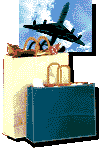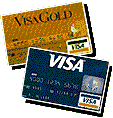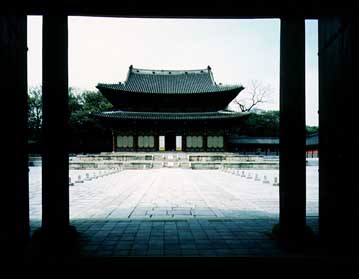|
|
Business Hours
|
Weekdays |
Saturdays |
Sundays &Holidays |
Banks |
9:30
a.m. - 4:30 p.m. |
9:30
a.m. - 1:30 p.m. |
Closed |
Post Offices |
9:30
a.m. - 6:00 p.m. |
9:00
a.m. - 1:00 p.m. |
Closed |
Department Stores |
10:30
a.m. - 7:30 p.m. |
Stores |
9:00
a.m. - 9:00 p.m. |
Private Companies |
8:30
a.m. - 7:00 p.m. |
8:30
a.m. - 2:00 p.m. |
Closed |
Foreign Diplomatic
Missions |
9:00
a.m. - 5:00 p.m. |
Closed |
Government Offices |
9:00
a.m. - 6:00 p.m. |
9:00
a.m. - 1:00 p.m. |
Closed |
Weather
Information during 'APRICOT 2000 in Seoul' |
|
Average Temperature
(Centigrade)
|
Average
Amount of
Rainfall
& Snowfall |
Remark
|
max |
average |
min |
Weather of Seoul |
3.3 |
-1.1 |
-4.8 |
25mm ~ 63mm |
|
|
Shopping |

|
Seoul
offers a wide variety of shopping opportunities
: arcades, department stores, duty-free shops, specialized
shopping districts and outdoor markets. But shopping
is not limited to Seoul. All the major cities have
department stores, souvenir shops and arcades. There
are two benefits to shopping in regional cities;
handicraft items are offered at lower prices and
it is possible to watch the handicrafts being produced
in many cases. Major department stores are open
from 10:30 a.m. to 7:30 p.m. including Sundays,
but smaller shops tend to be open from early morning
till late evening every day of the week. Prices
are fixed and there is no haggling in the major
stores. |
*more information for shopping :
www.knto.or.kr/english/eshopping/shoppingsall.htm
Currency & Credit Cards |
The unit
of Korean currency is the Won (indicated as W).
Coin denominations are W1, W5, W10, W100 and W500.
Banknotes are W1,000, W5,000 and W10,000. Foreign
banknotes |
and traveler's checks
can be converted into Korean Won at foreign exchange
banks and other authorized money changers. The foreign
exchange rates are subject to market fluctuations.
One U.S. dollar was equivalent to about W1,300 as
of April 1998. Credit cards including VISA, American
Express, Diners Club, Master Card and JCB, are accepted
at major hotels, department stores and large restaurants.
If you want to know a Exchange Rate,
Click Here~! |

|
Telephone
Calls
There are two types
of public telephone system in Korea: a coin-operating telephone
and a card-operating telephone. Coin-operating telephones can
be used for both local and long distance calls. Card-operating
telephones can be used to make international calls as well as
local and long distance calls.
Emergencies
Dial 119 for an emergency. The hotel front desk
or hotel manager can arrange for a doctor or an ambulance. If
you need a doctor on the street, ask a policeman or someone
for assistance.
Electricity
In Korea, two outlets for both 110 and 220 volts
are available. Always check the power supply before using any
equipment
Tipping
Tipping is not a traditional Korean custom. A
10% service charge is added to your bill at all tourist hotels
and so tipping is not expected. It is not necessary to tip a
taxi driver unless he assists you with luggage or provides an
extra service. |

